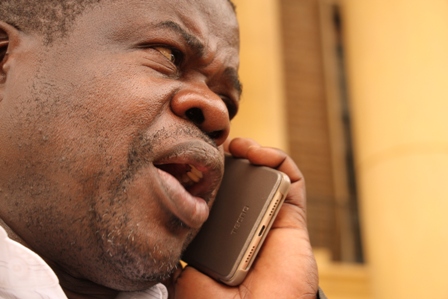BY SAM ALFAN.
The High court has temporarily suspended move by Communication Authority of Kenya to install tapping devises on mobile phones.
Justice John Mativo further certified the matter as urgent and directed the parties to appear for inter- party hearing on the 6th of March this year.
“Pending hearing and determination of the case a temporary order is hereby issued to the respondents prohibiting them, whether by themselves or any of their employees or agents or any other persons claiming to act under their authority from proceeding to give effect in any way whatsoever to the Communication Authority Of Kenya two letters dated 31st January 2017 and 6th February 2017, both references as CA/LCS/1600/Counterfeit Devices/Vol.11,”ruled judge Mativo.
“The respondents have threatened Article 31 of the Constitution of Kenya by setting into motion a mechanism that will interfere with the right to freedom of conscience, religion, thought , belief and opinion, “reads the petition.
Article 31(c) and (d) of the constitution States -Every person has the right to privacy, which includes the right not to have-(c) information relating to their family or private affairs unnecessarily required or revealed; or (d) the privacy of their communications infringed.
He argues that the right to privacy is entrenched in the constitution and cannot be limited without reference to article 24 of the constitution.
Okiya Omuata has moved to court seeking to block Communication Authority of Kenya from installing Device Management System.
Omutata argues that Omutata government decision to set up a system spying on Kenyans is unconstitutional and therefore null and void.
If the move is implemented it was breach article 31 of the constitution.
Orange Telkom Kenya , Airtel Networks Kenya Limited and Safaricom Limited have been named as interested parties in the case.
He argues that the right to privacy is entrenched in the constitution and cannot be limited without reference to article 24 of the constitution.
Omtatah accused the CA of lying to Kenyans that the gadgets will only track fake equipment, arguing that there are existing laws being used by mobile network providers to detect fake phones.
The government on February 6 wrote to mobile telephone providers Safaricom Limited, Airtel Networks Limited and Orange-Telkom Kenya to allow the tapping of their computers by planting spying plant gadgets on all networks in the country.
The devices can access information stored by service providers and transacted on phone owned by individuals, including the times and dates of then communication, exact location of calls and duration of calls.







